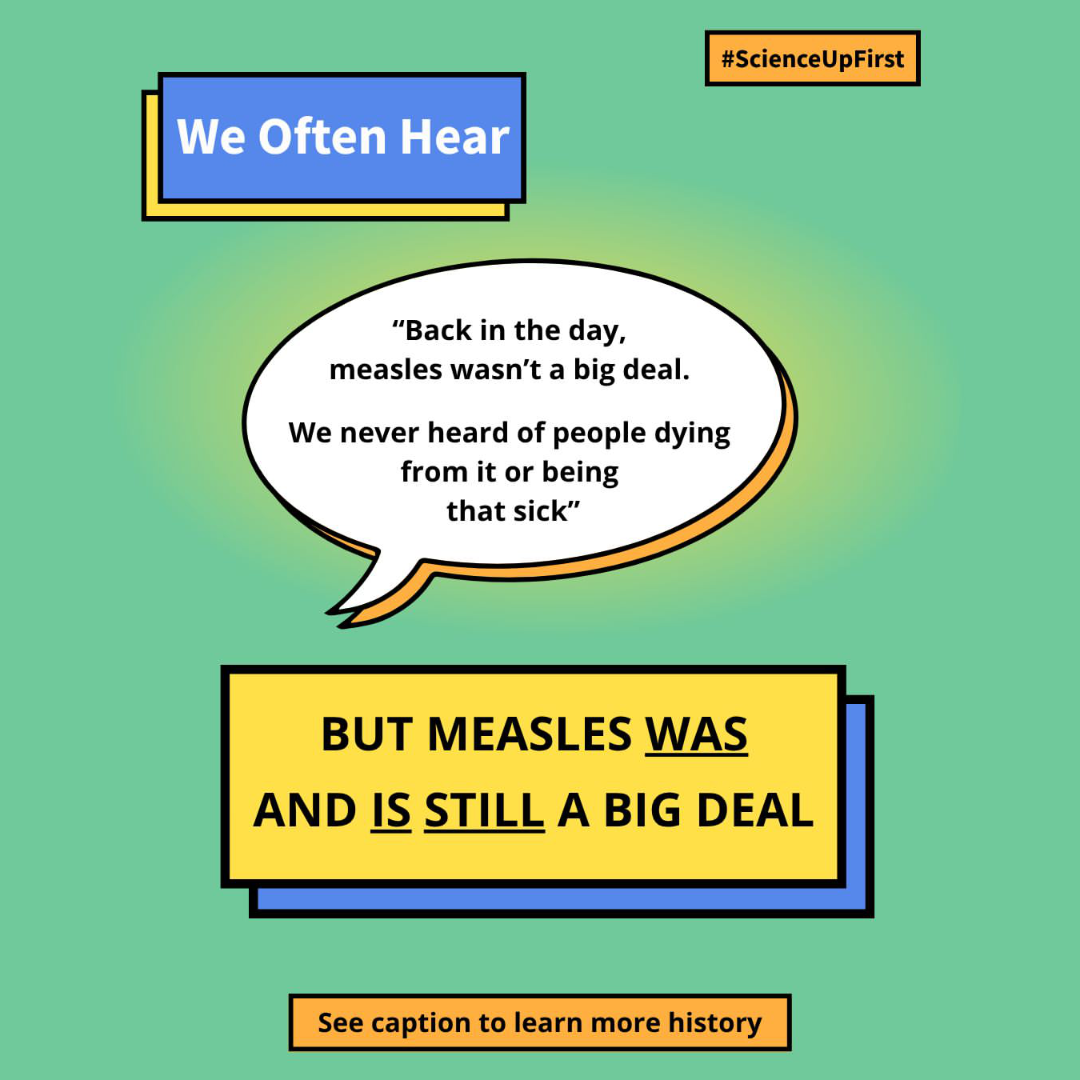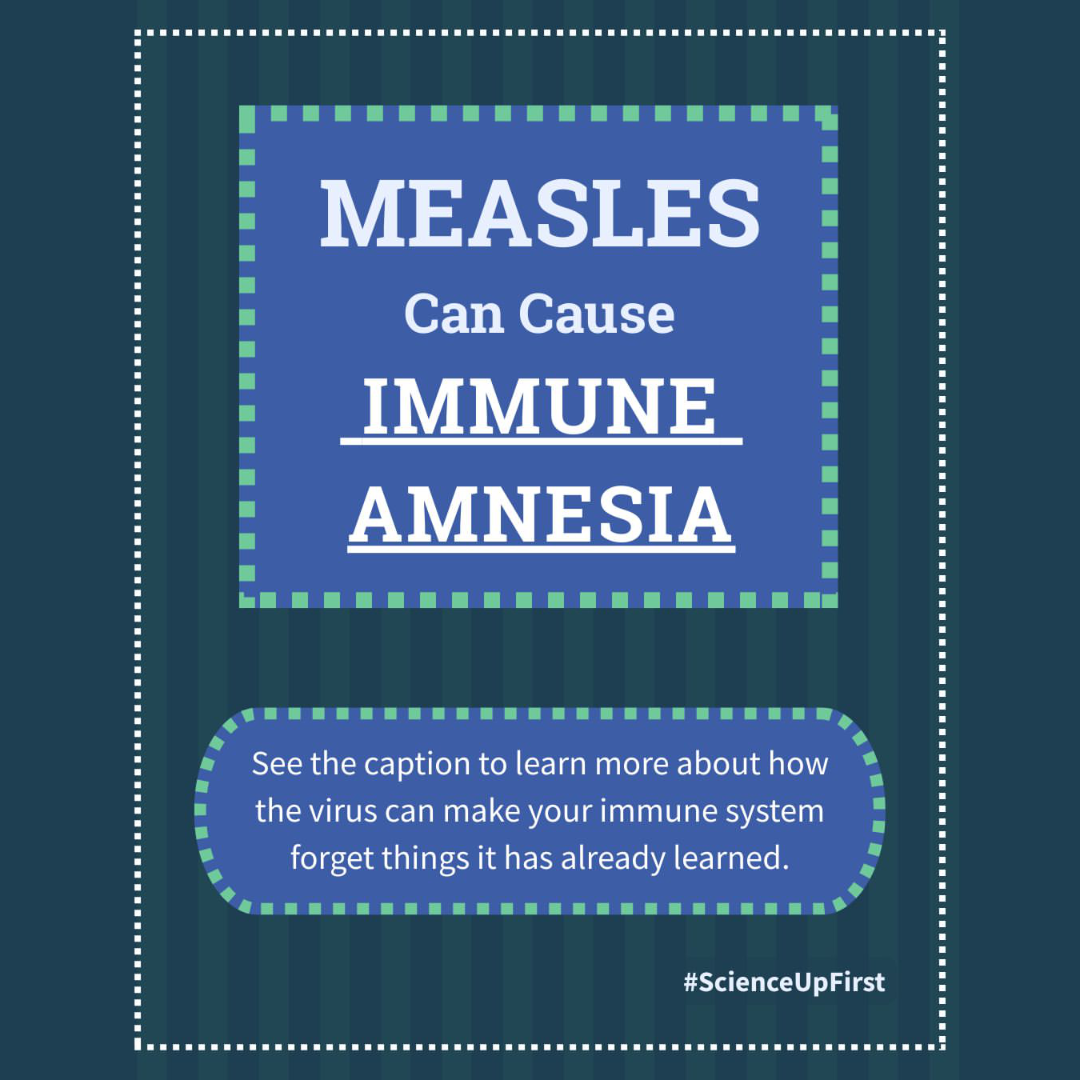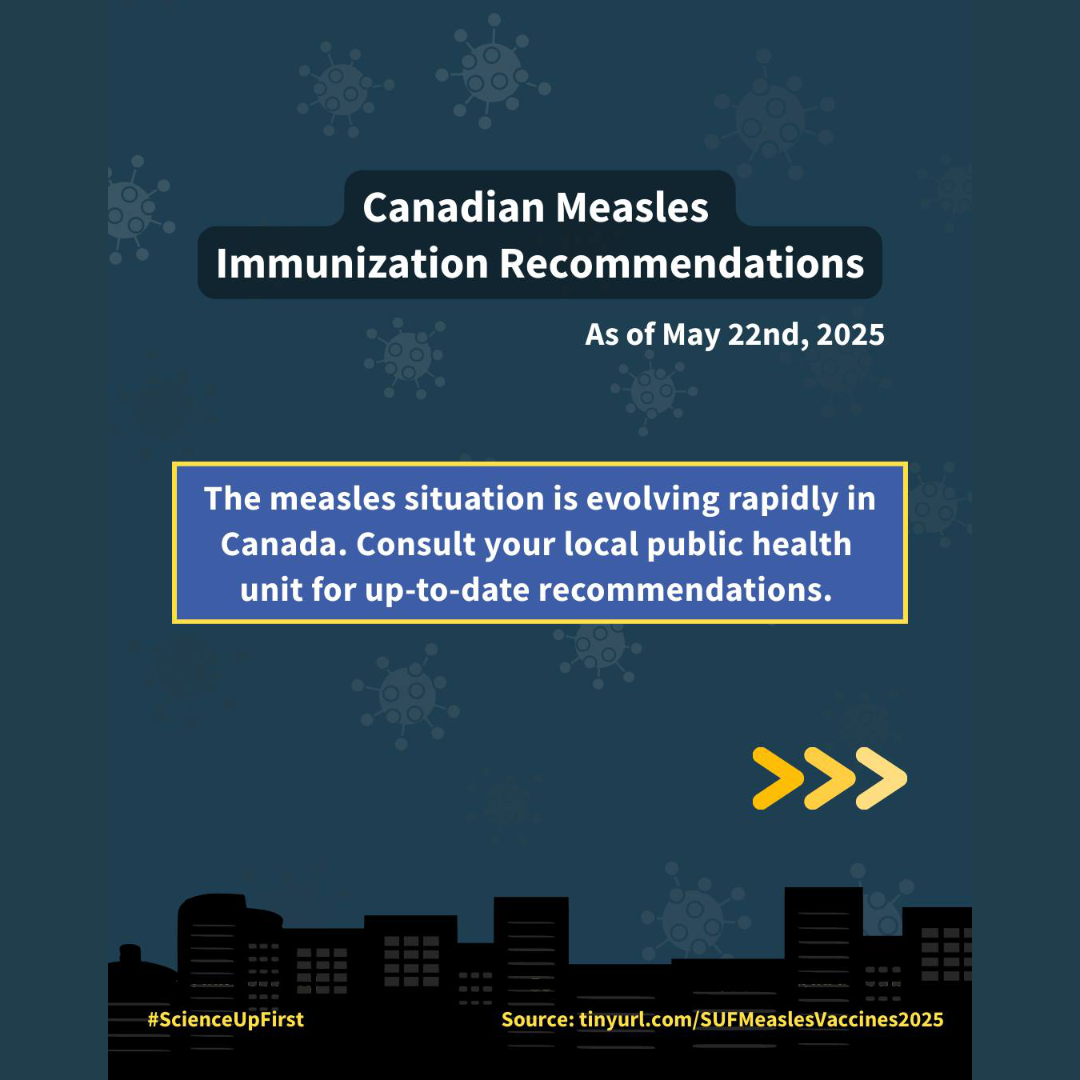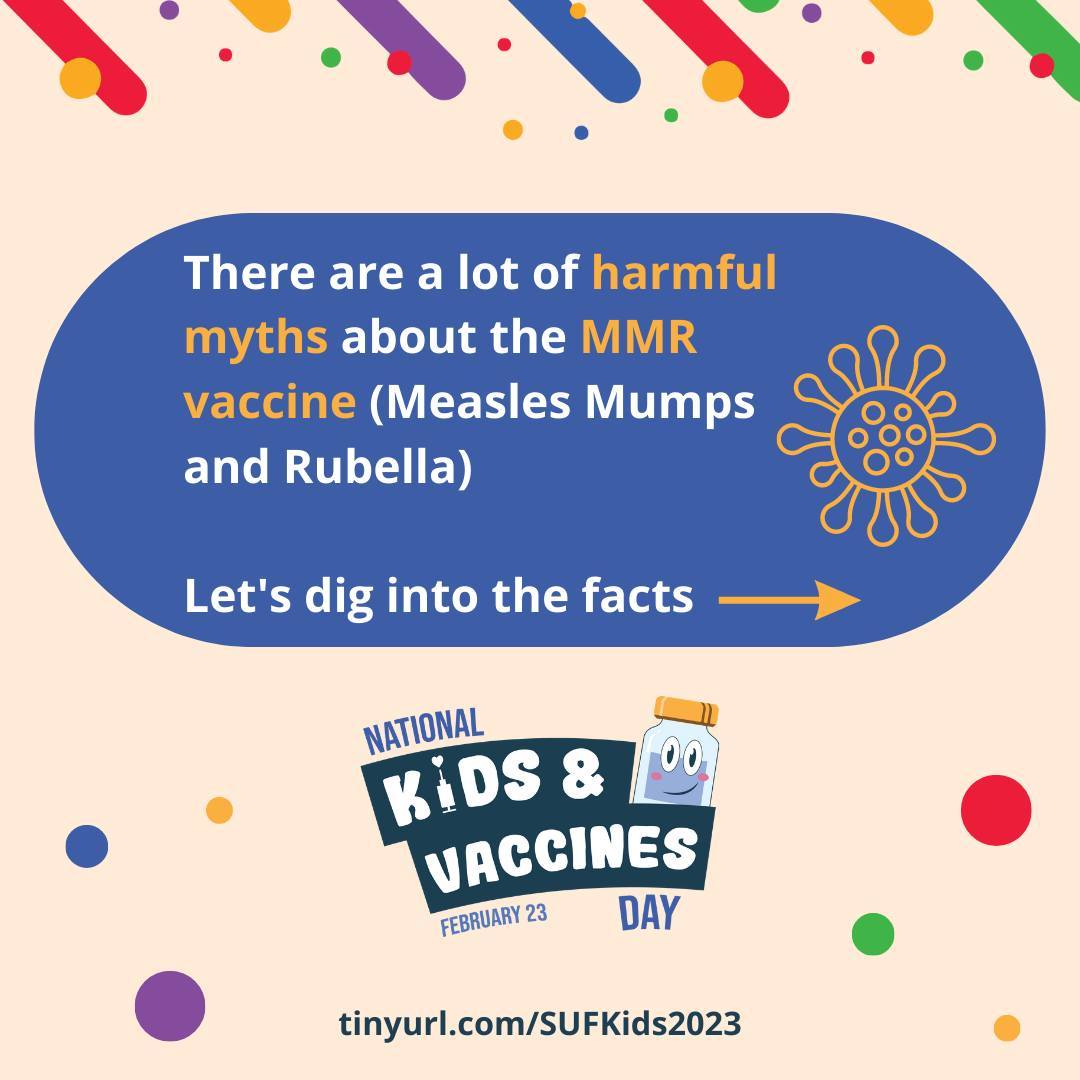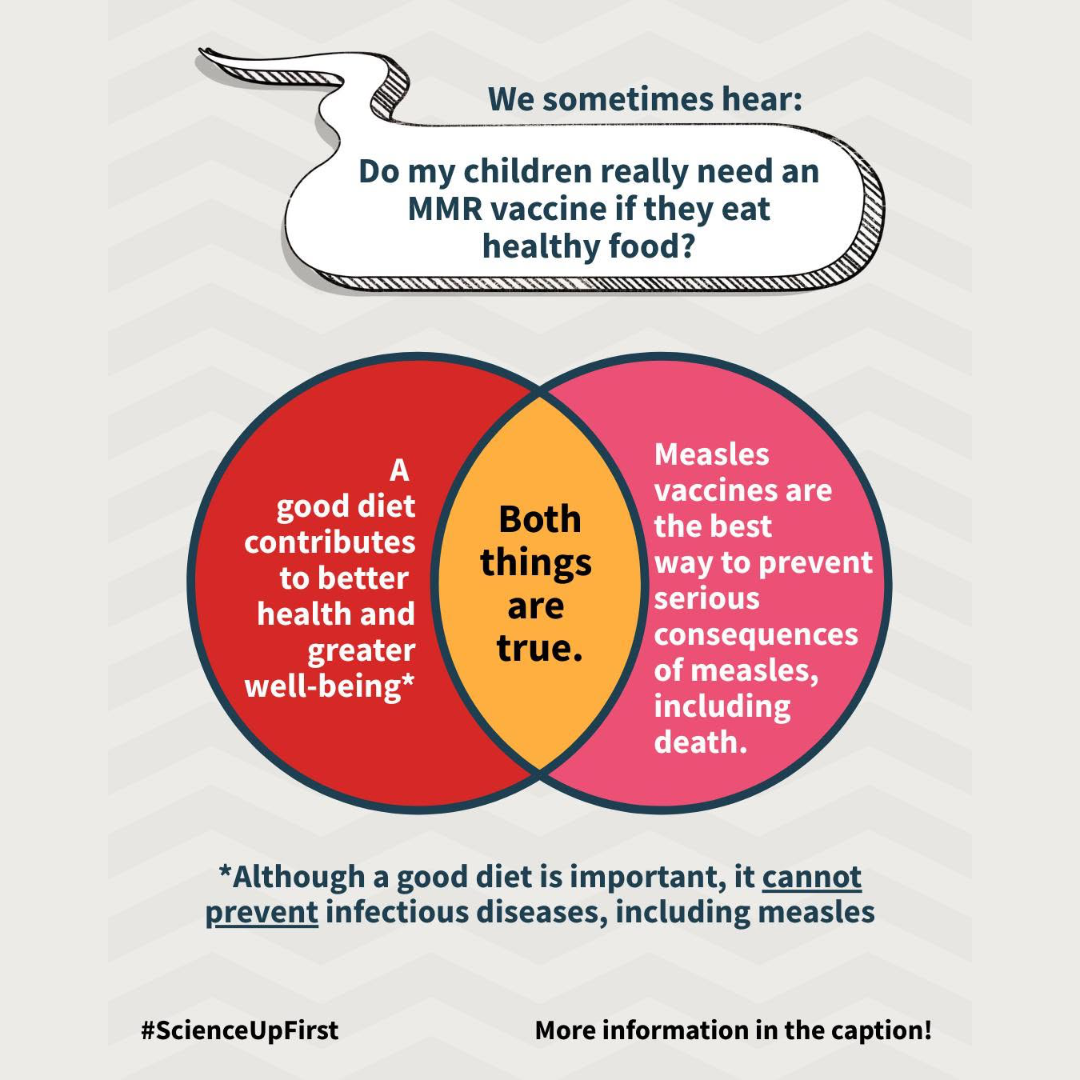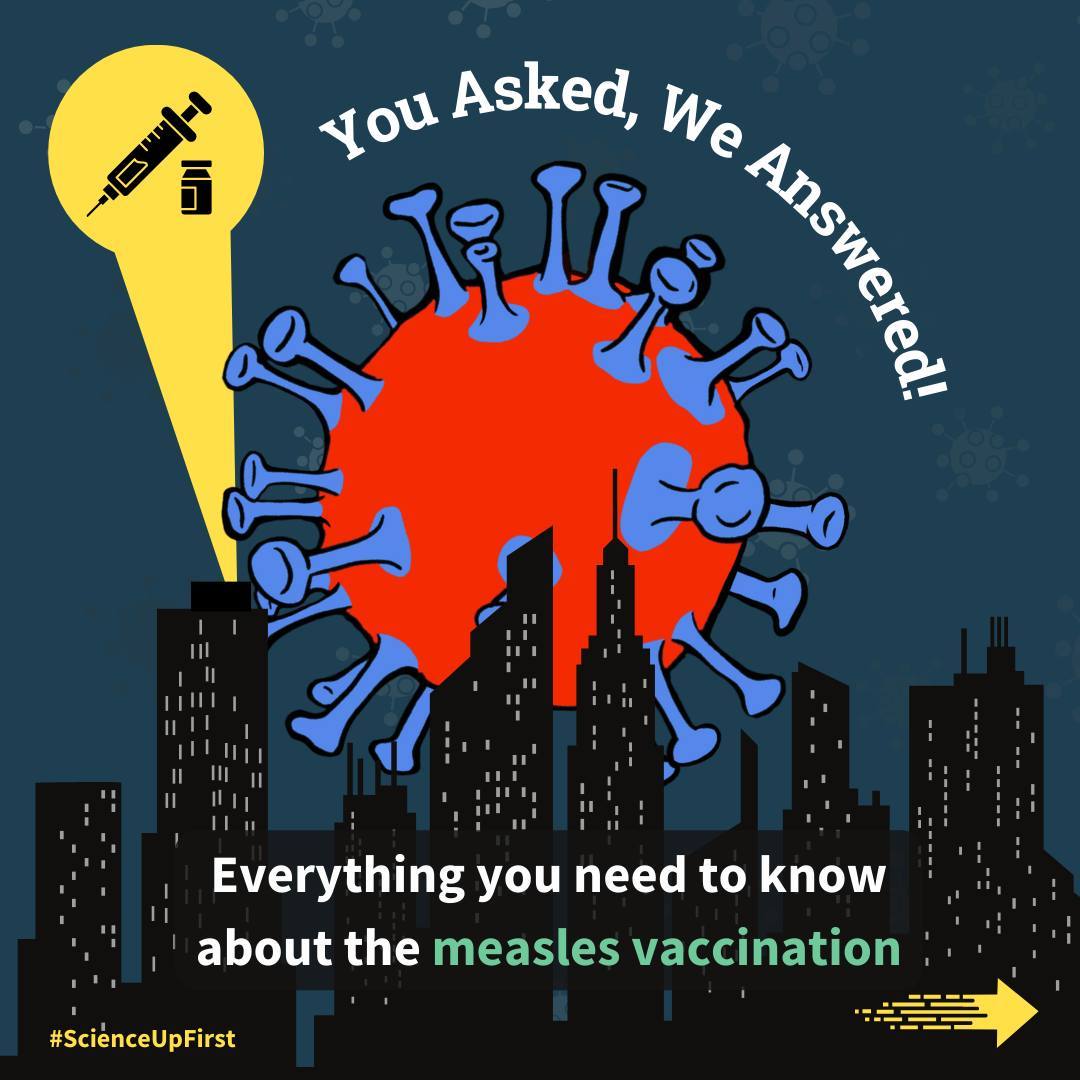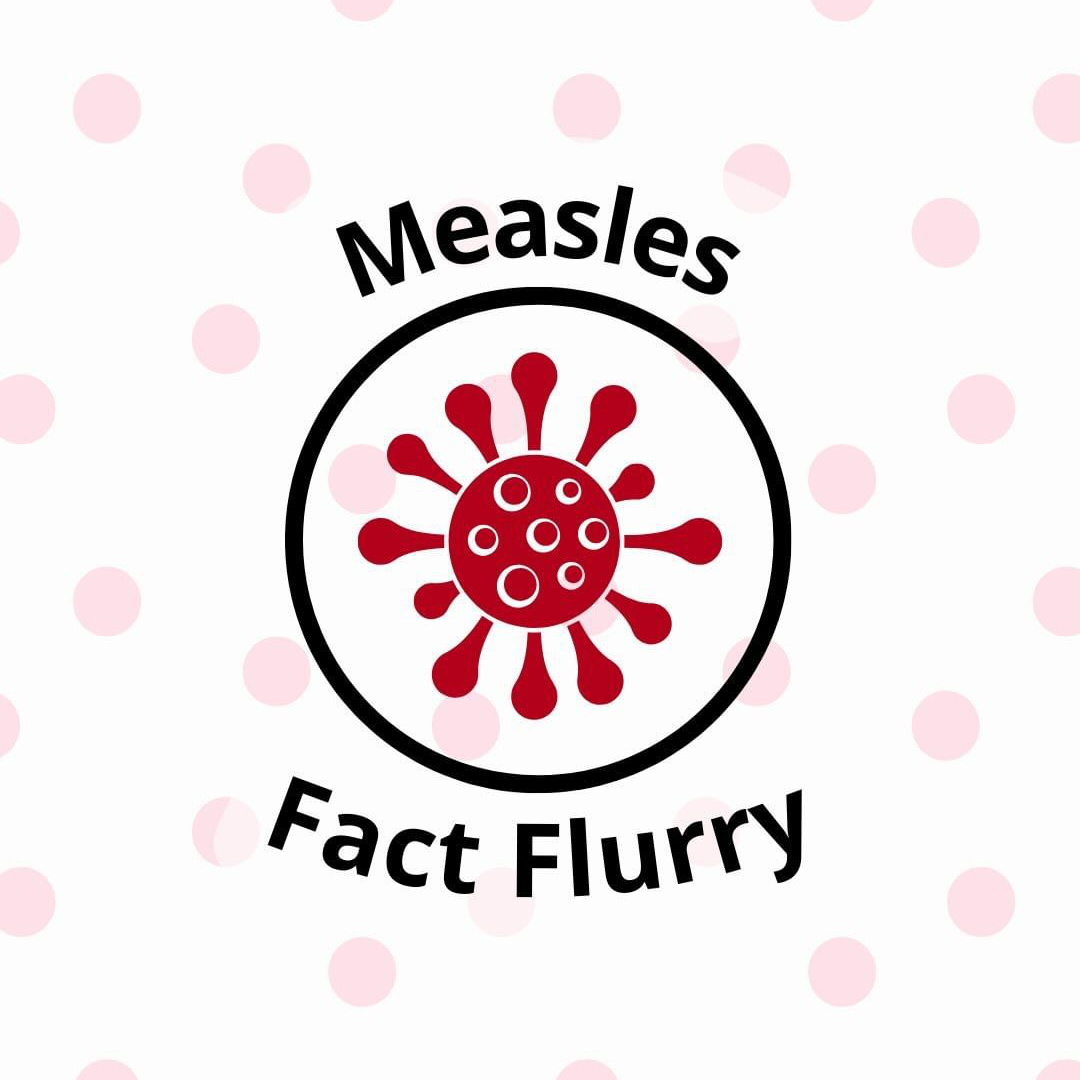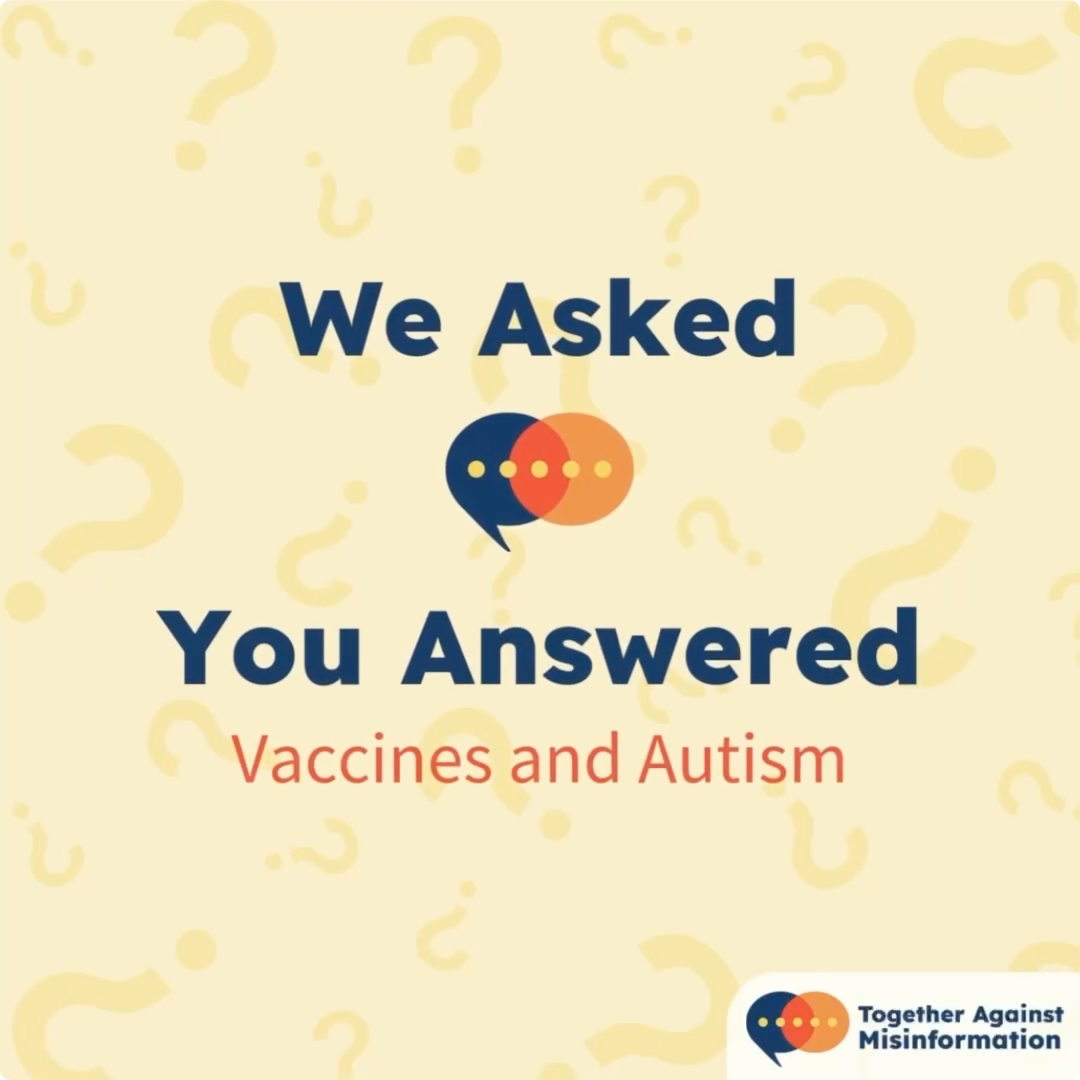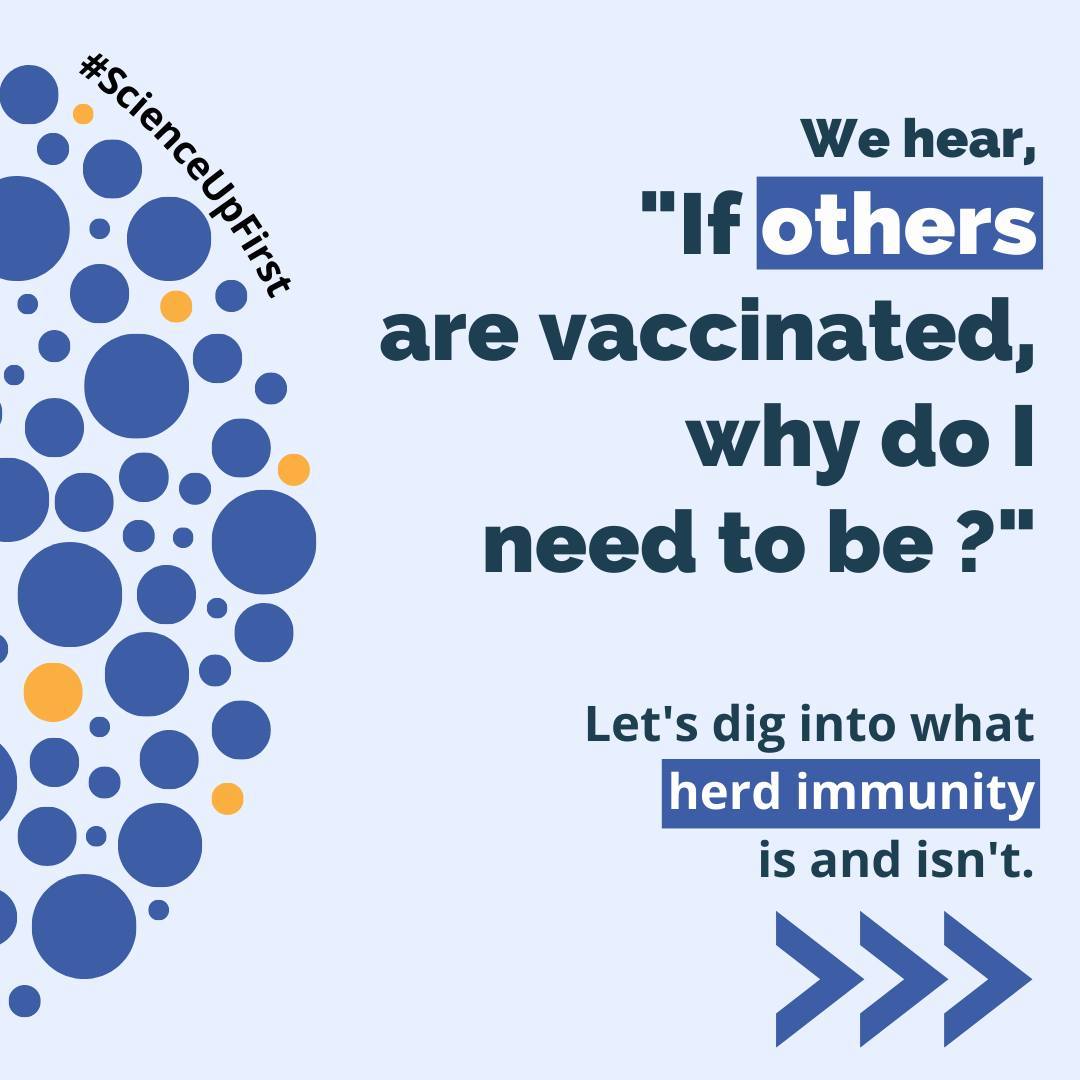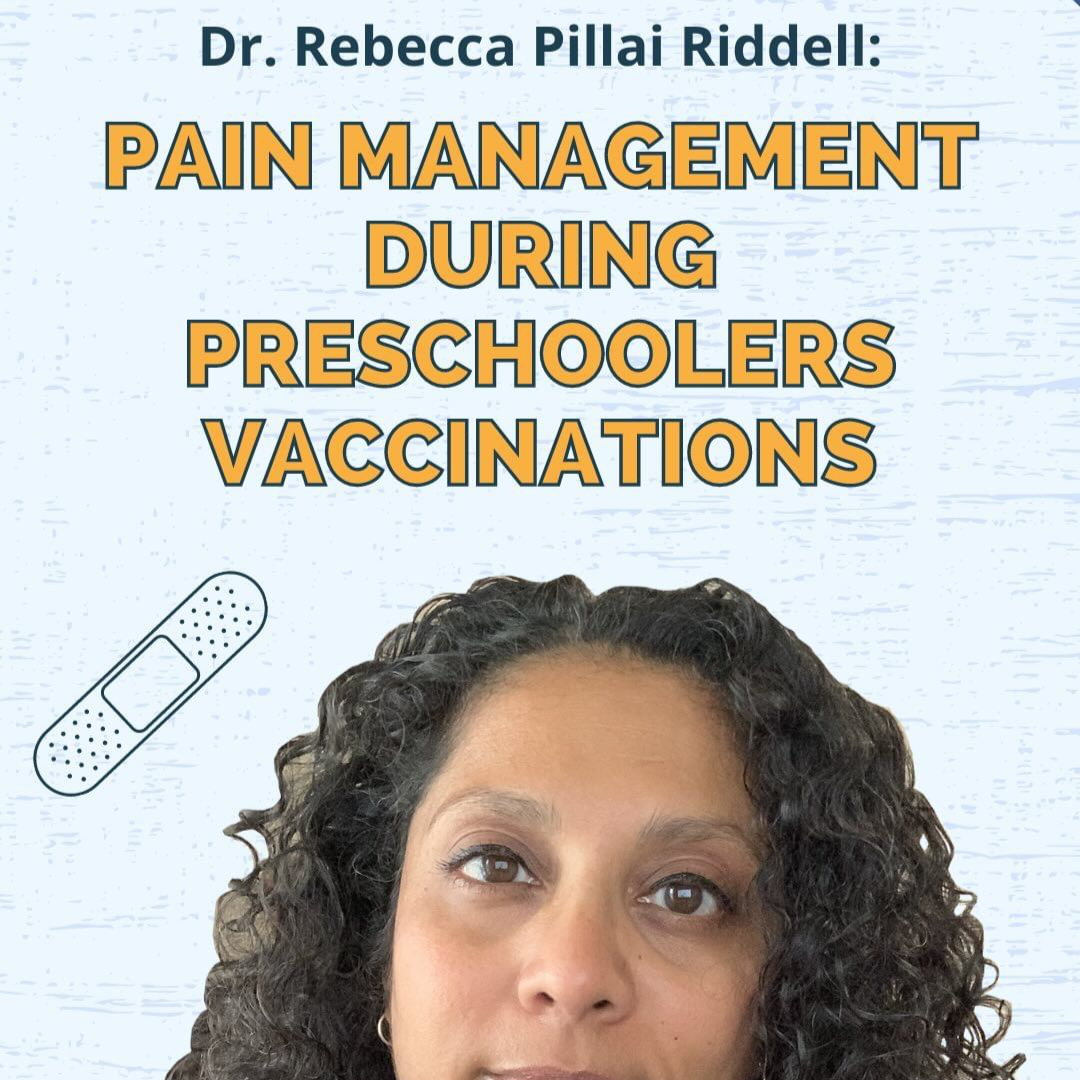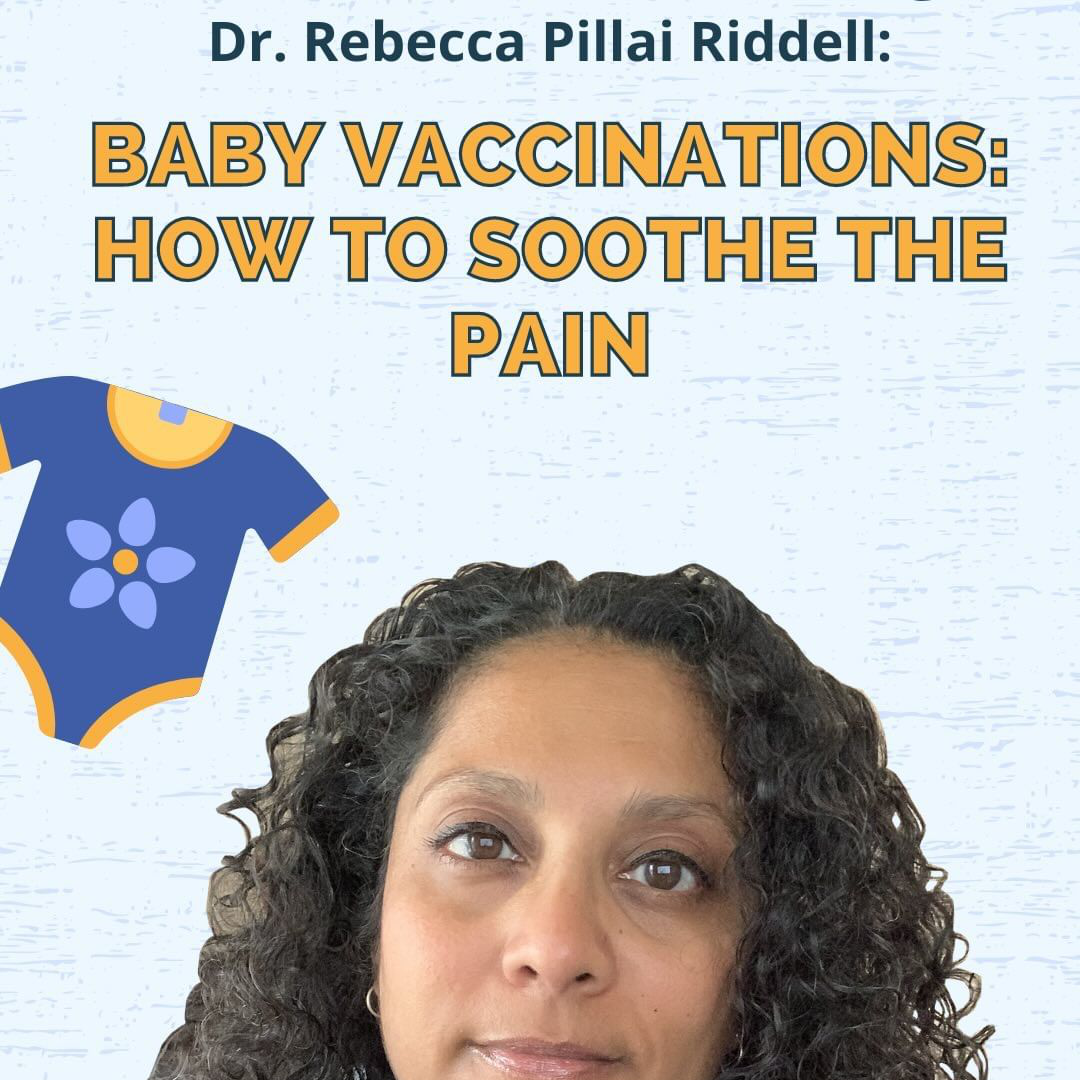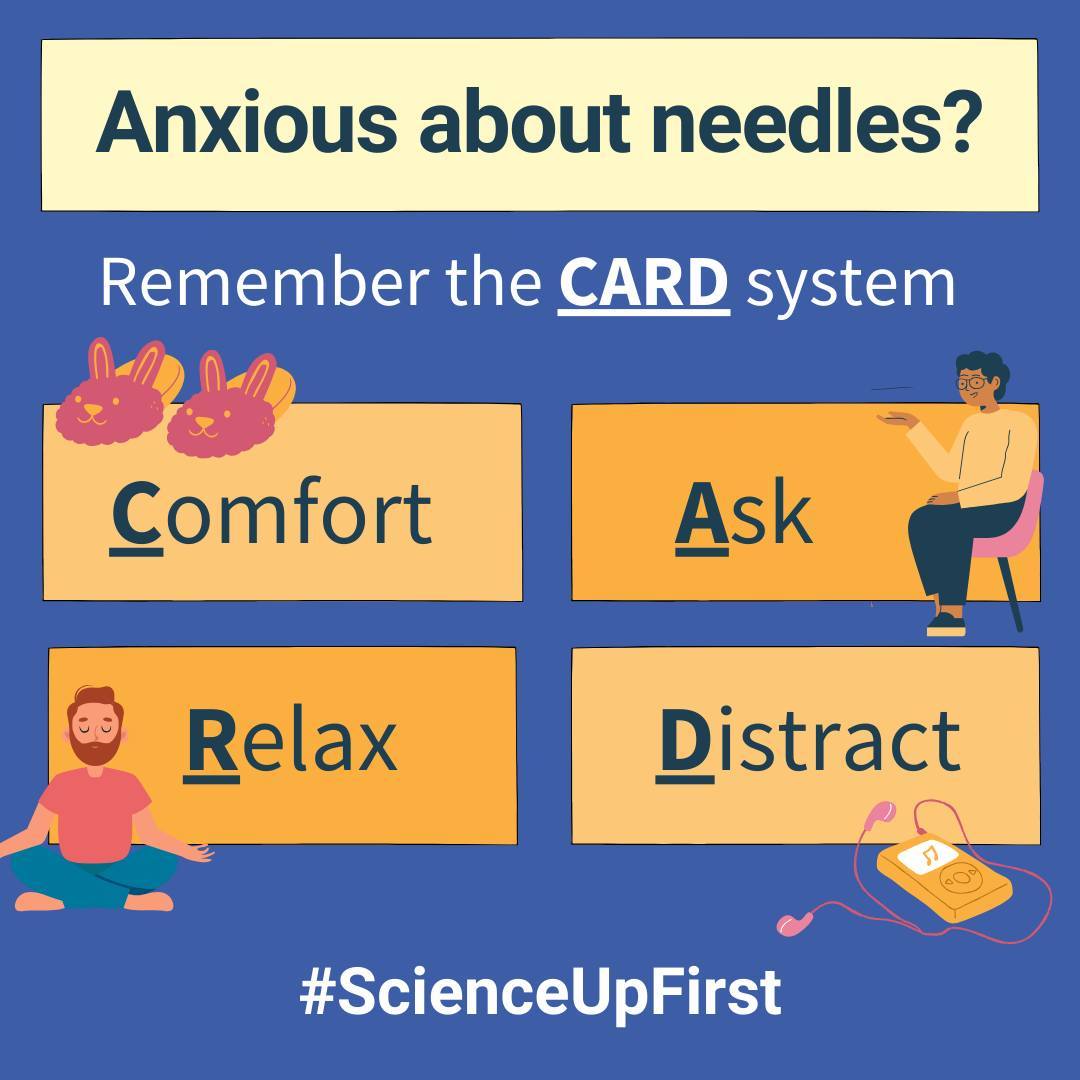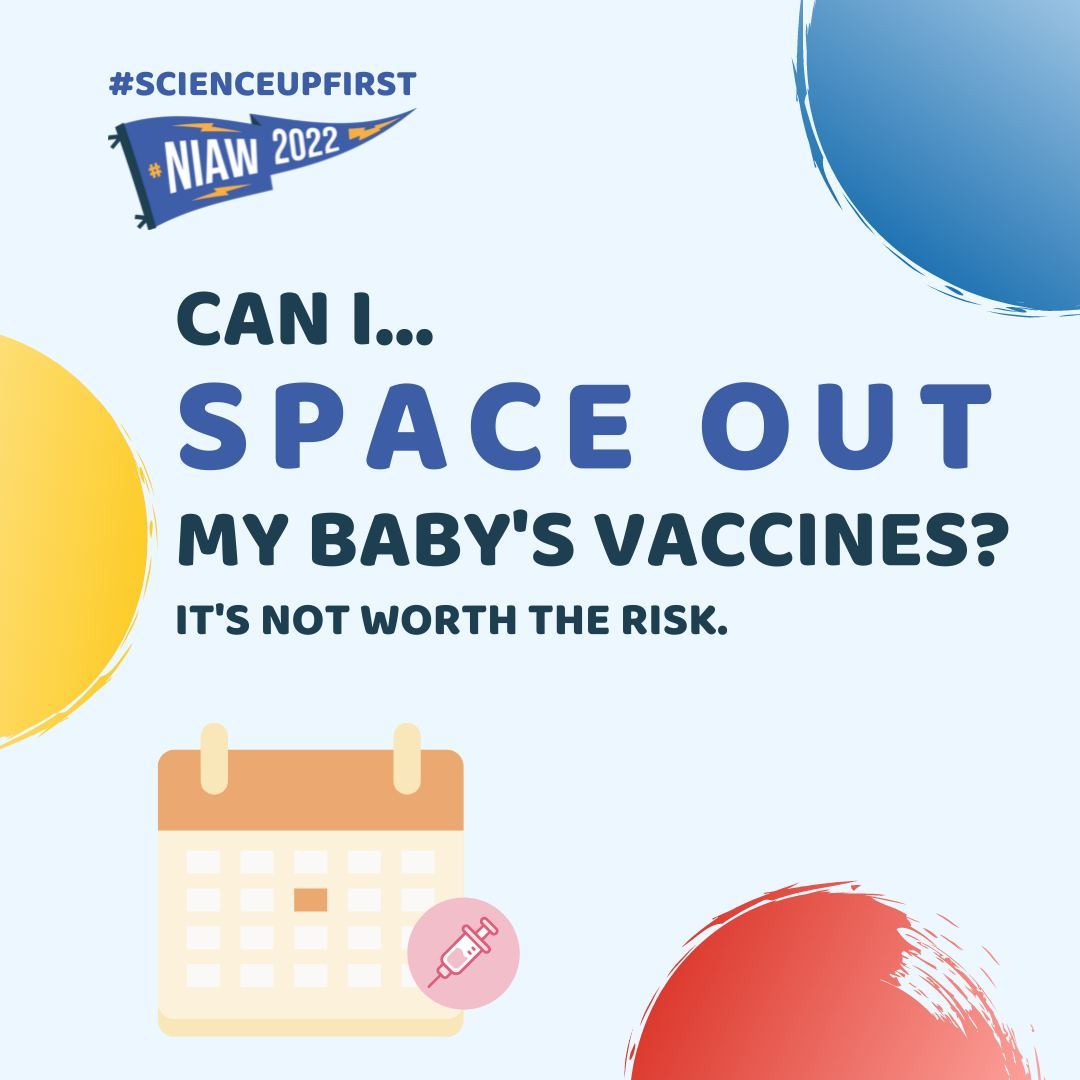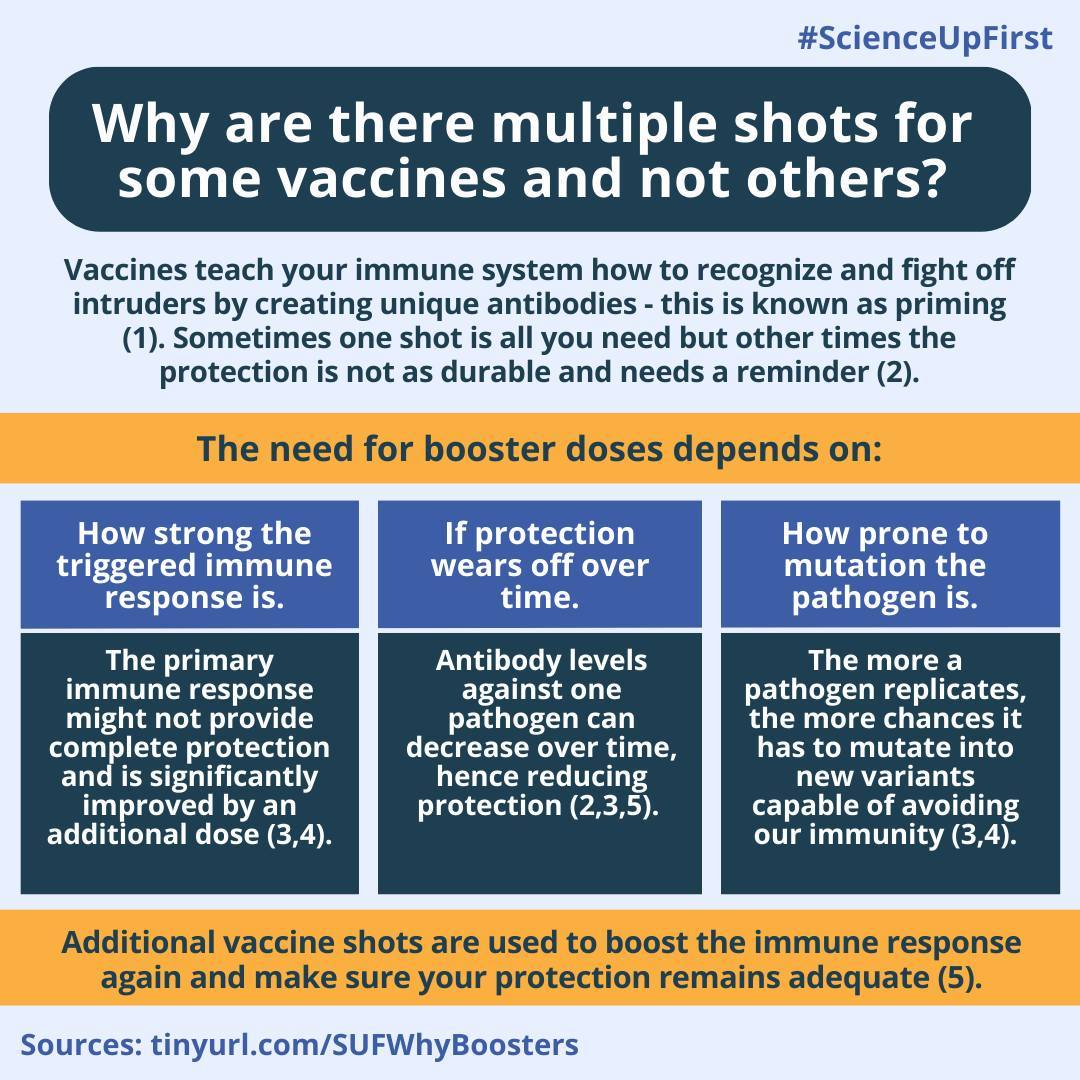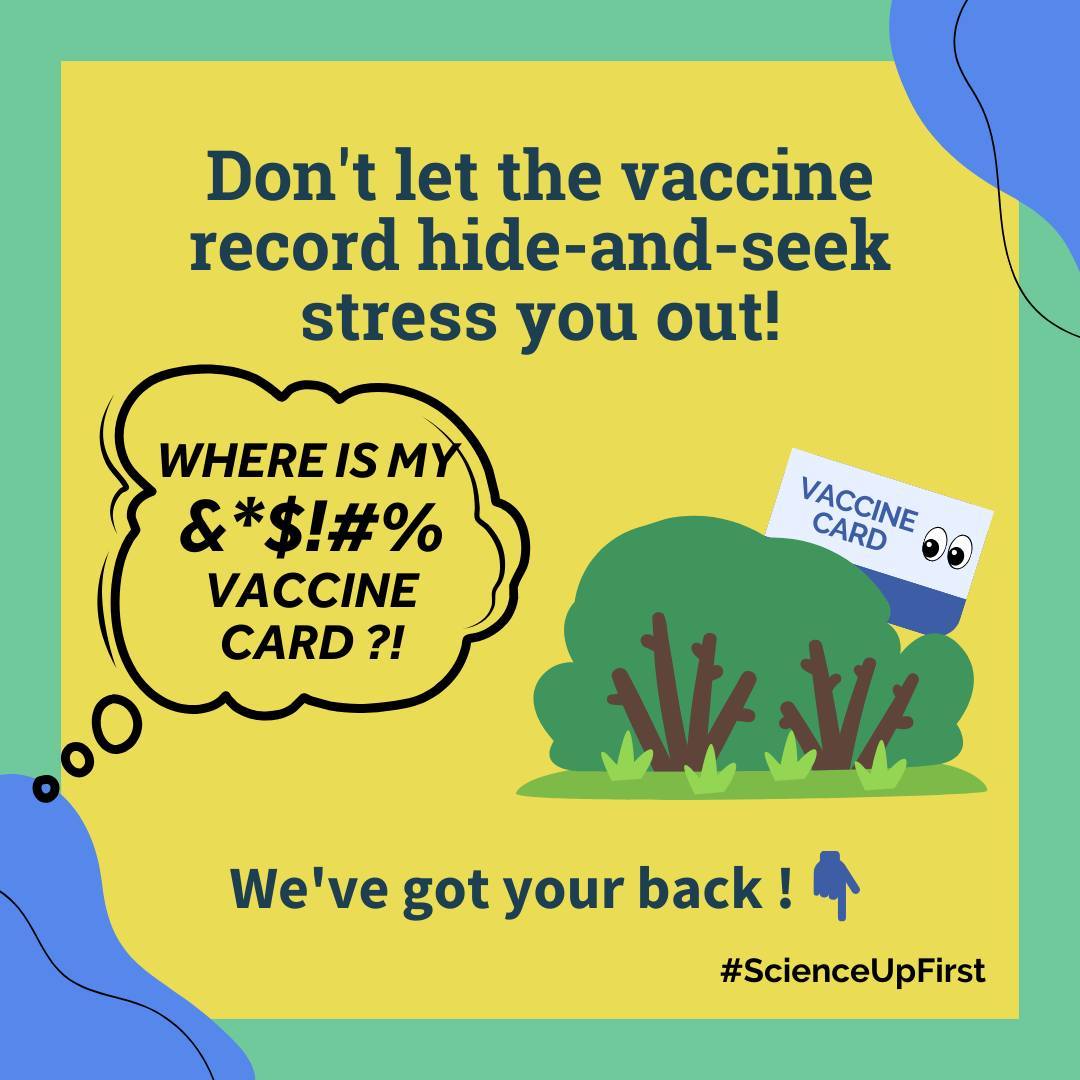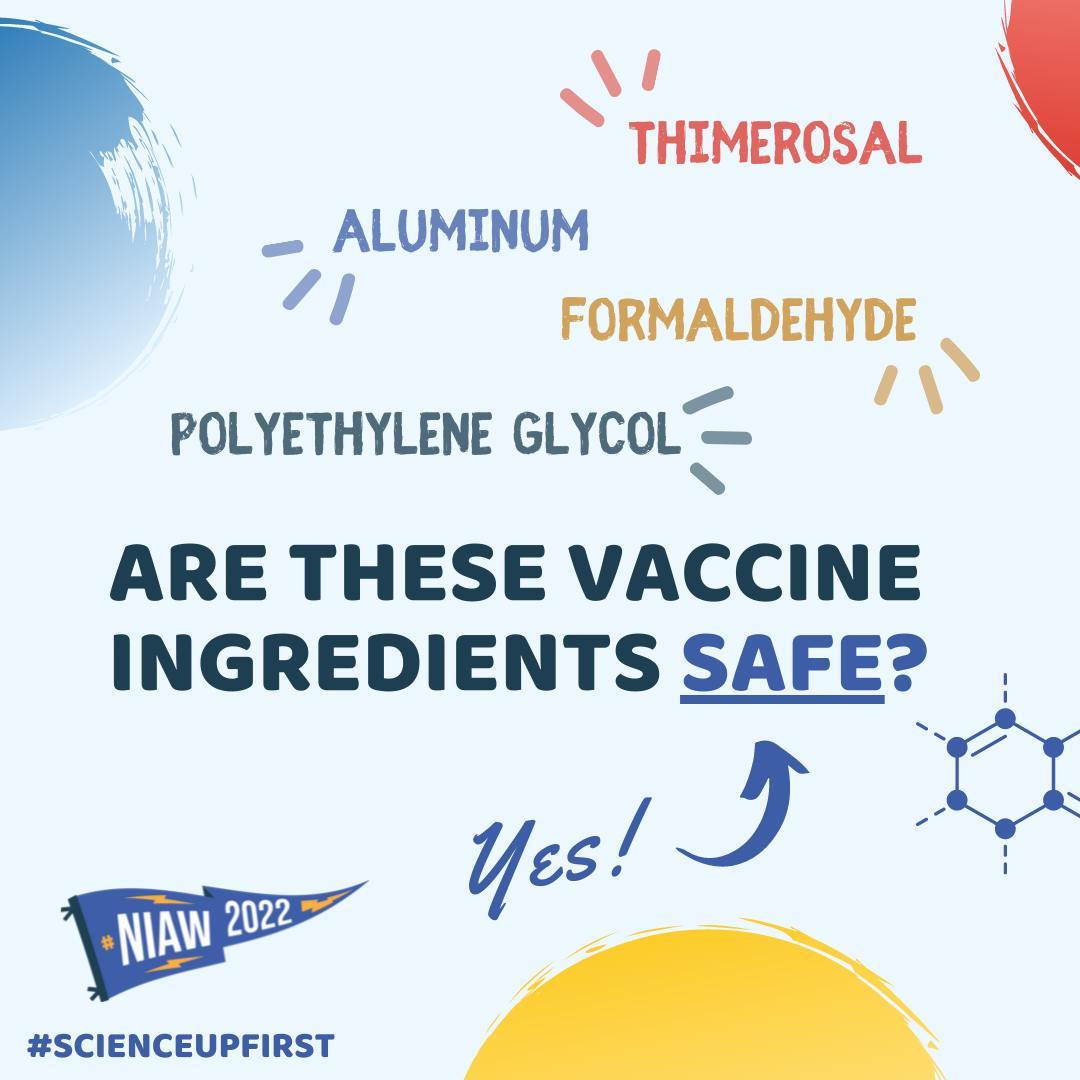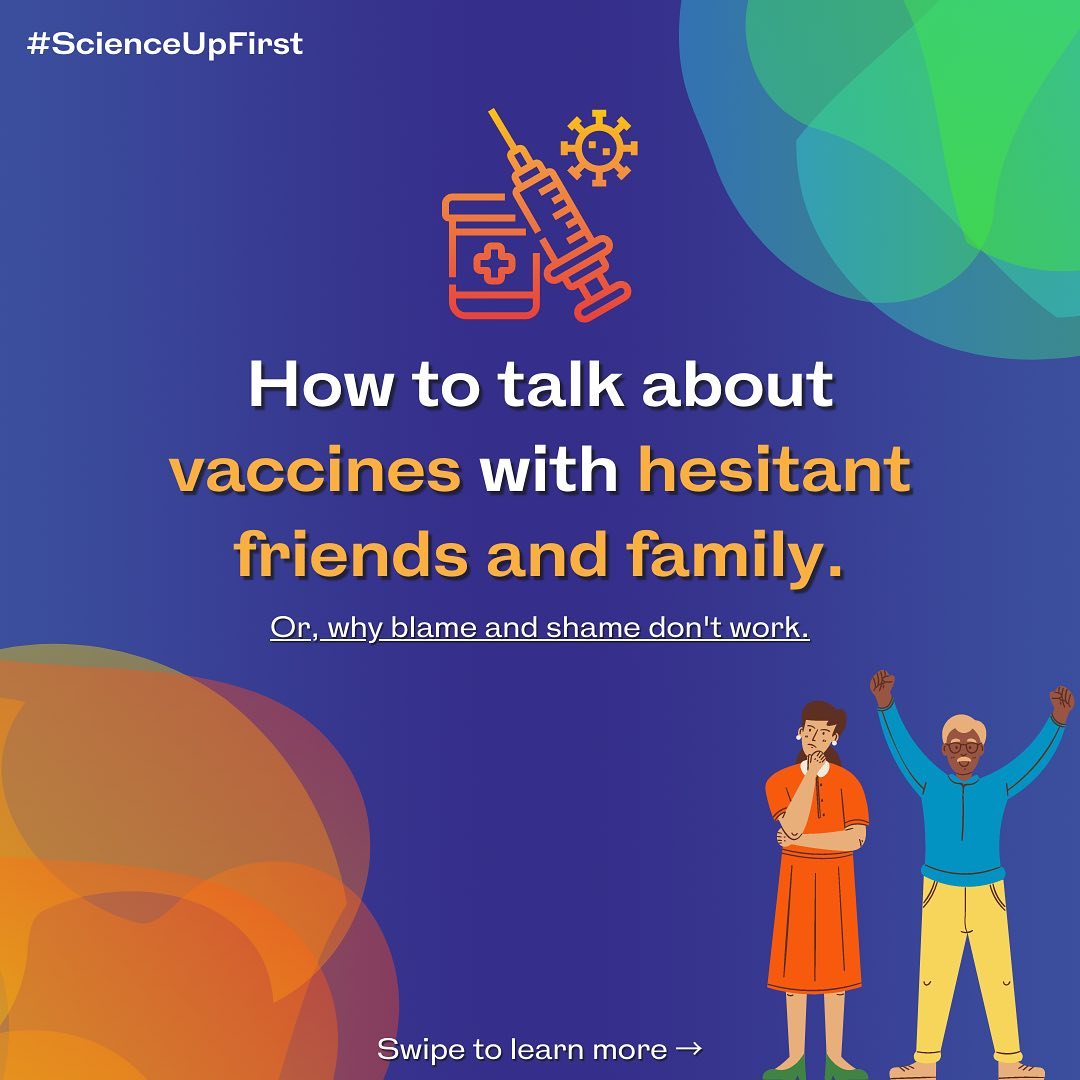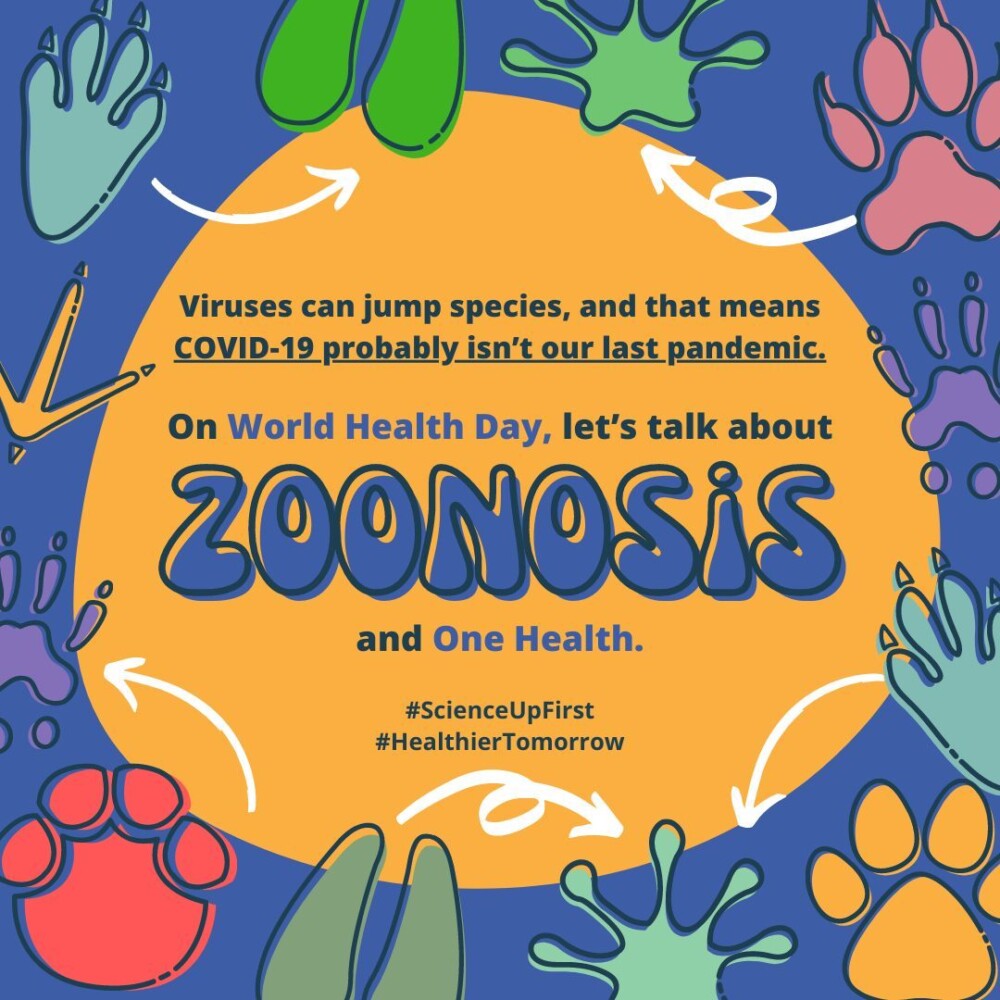Measles Resources and FAQ
Measles is serious. Canada has now reported measles-related deaths after decades without them.
This page provides key resources and answers to common questions.
Last Modified:
Introduction
Measles outbreaks continue across Canada. Already this year, thousands more measles cases have been confirmed than all of 2024 combined (1,2).
Last year, Canada experienced its first measles related death since 1989. There has been one death reported by Ontario in a congenital case of measles who was born pre-term and had other underlying medical conditions (3,4,5).
What Explains This Surge In Cases?
For years, there has been a noticeable decline in the uptake of MMR/V (measles, rubella, mumps, and sometimes varicella) vaccines (6,7). As of 2023, only 87% of Canadians adults had received at least one dose of measles vaccines (8). In 2021, only 79% of Canadians children had received their recommended 2 doses of measles vaccine by their 7th birthday (7). Maintaining herd immunity for measles requires a 95% vaccination rate (learn more about herd immunity here) (6,9). Insufficient immunization coverage poses a great risk of outbreaks.
Measles Facts (10,11,12)
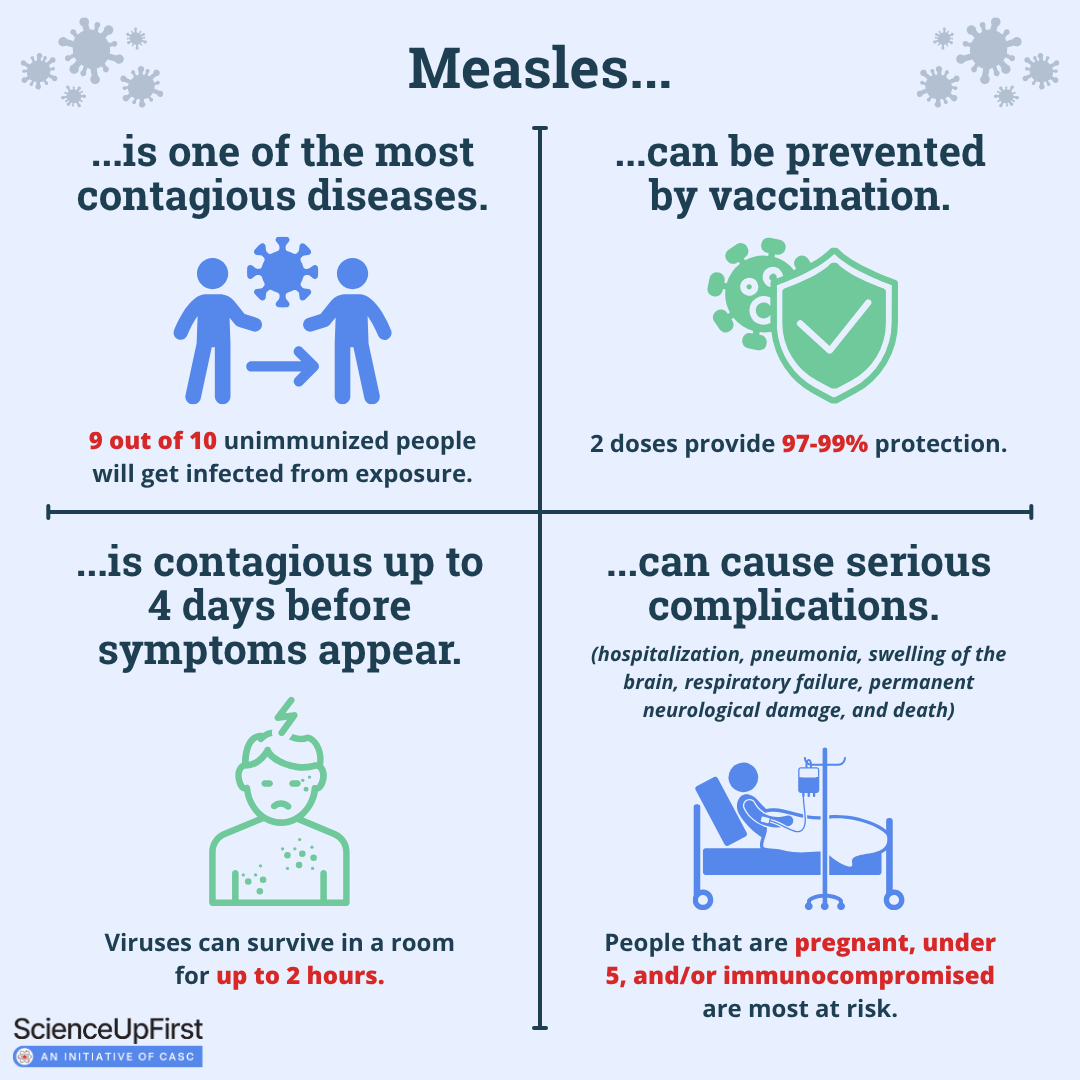
Measles cases are closely monitored in Canada. Check out the government’s weekly surveillance report to track the measles situation in your province or territory.
Frequently Asked Questions
Is there a link between the Measles Mumps Rubella (MMR) vaccine and Autism?
No. This question has been studied extensively for multiple decades and has never been supported by the evidence. The prevalence of autism is not any different in vaccinated or unvaccinated children or adults. For example, a 2002 study that looked at over 537,303 Danish children, 82% of which were vaccinated for MMR, found no difference in the risk for autism between the vaccinated children and the unvaccinated children.
Similarly, dozens and dozens of studies, including systematic reviews and meta-analyses, which are studies that look at the totality of the available evidence published in scientific journals, have come to the same conclusion: vaccines do not increase the risk of autism. A 2015 meta-analysis looked at 1,266,327 individuals and found no association, nor did a 2020 systematic review with 23,480,668 participants.
Much of the current anti-vaccine sentiment stems from a fraudulent paper published by Dr. Andrew Wakefield and 11 other authors in 1998. The authors, who claimed to have found a link between MMR vaccines and autism, had demonstrably falsified their data and hand-picked their sample of 12 children rather than randomizing it. They were found guilty of deliberate fraud. They also failed to disclose that they were funded by lawyers who had been engaged by parents in lawsuits against vaccine-producing companies.
As a result, 10 of the 12 original authors of the paper have retracted their interpretation. The journal that had published the paper also retracted the paper. Since then, millions of dollars of research have shown no link between vaccines and autism but the fear that something is being hidden from parents still endures.
Sources
- Autism and Vaccines | Autism Science Foundation
- Autism and Vaccines: Read the Science | Autism Science Foundation
- Vaccines and Autism: What you should know | Children Hospital of Philadelphia | 2019
- A Population-Based Study of Measles, Mumps, and Rubella Vaccination and Autism | New England Journal of Medicine | The New England Journal of Medicine | November 2002
- Autism Occurrence by MMR Vaccine Status Among US Children With Older Siblings With and Without Autism | JAMA | April 2015
- Vaccines for measles, mumps, rubella, and varicella in children | Cochrane Library | 2020
I don’t remember kids dying of measles in the 1960s. Is it really a big deal?
Prior to the introduction of vaccines, there were on average 45,000 measles cases each year in Canada. Contrary to some claims, measles-related deaths were pretty common in the early 1900s, killing hundreds each year. In 1926, Canada saw its highest death toll ever reported, with nearly 900 deaths (21 deaths per 1,000 cases). While death numbers had declined into the double digits by the late 1950s – largely due to improvements in medical care, nutrition, and living conditions – measles itself remained widespread. Case numbers did not significantly decrease, and annual deaths didn’t drop below 10 until after vaccination began.
Although most people survived the infection, measles was not benign and serious complications were still common. About 1 in 10 Canadians developed secondary infections like bronchopneumonia, and roughly 1 in 1,000 developed brain inflammation which can lead to coma, seizures, permanent neurologic damage, and death.
Sources
- Guidelines for measles outbreak in Canada | The Public Health Agency of Canada | October 2013
- Measles | National Collaborating Centre for Infectious Diseases | Updated April 2, 2025
- Measles in Canada – 1986 update | Epidemiologic Report – Canadian Medical Association Journal | September 1986
- Measles Elimination in Canada | The Journal of Infectious Diseases | May 2004
- Measles Elimination in the United States | The Journal of Infectious Diseases | May 2004
- Measles: For health professionals | Government of Canada
- The misery of measles in a world without vaccines | The Globe and Mail | February 2015
- History of measles vaccination | World Health Organization
- Age-specific measles mortality during the late 19th–early 20th centuries | Epidemiology & Infection | April 2015
- Impact of Measles in Canada | Reviews of Infectious Diseases | June 1983
What is Immune Amnesia?
Measles doesn’t just make you sick – it can harm your immune system’s memory, leaving you more vulnerable to other infections.
When the measles virus gets into your body, it attaches and infects special immune cells called macrophages. These cells normally help protect you by eating germs like bacteria and viruses.
However, instead of being destroyed, the measles virus hijacks the macrophage and starts making copies of itself. Meanwhile, the infected macrophage travels to the nearest lymph node, which acts as a meeting point for immune cells. From there, the virus starts infecting memory B and T cells – specialized immune cells that remember past infections and help the body fight them off faster .
The problem is, to clear the infection, your immune system has to destroy all those infected immune cells – which also means wiping out much of your existing immune memory and leaving you more vulnerable to secondary infections. Afterward, your body will rebuild new memory cells, but most of them will only recognize measles. You’ll be left with a very strong protection against it, but your defenses against everything else will be much weaker.
Sources
- Measles and Immune Amnesia | American Society for Microbiology | Updated February 2024
- Early Target Cells of Measles Virus after Aerosol Infection of Non-Human Primates | PLOS Pathogens | January 2011
- The morbillivirus receptor SLAM (CD150) | Microbiology and Immunology | November 2013
- Immune response | MedlinePlus Medical Encyclopedia
- Macrophage | MedlinePlus Medical Encyclopedia
- Measles: The race to understand ‘immune amnesia’ | BBC | February 2024
- Measles Immune Suppression: Lessons from the Macaque Model | PLOS Pathogens | August 2012
- Studies into the mechanism of measles-associated immune suppression during a measles outbreak in the Netherlands | Nature Communications | November 2018
- Measles wipes out immune system’s memory, study finds | Immunology | The Guardian | October 2019
- Measles virus infection diminishes preexisting antibodies that offer protection from other pathogens | Science | November 2019
- Incomplete genetic reconstitution of B cell pools contributes to prolonged immunosuppression after measles | Science Immunology | November 2019
- Measles infection leads to long-term immune suppression, not noted with MMR vaccine | The Journal of Pediatrics | March 2020
Who needs to be vaccinated?
Measles-containing vaccines are recommended for anyone without contraindications (medical reasons not to receive the vaccine) that are not fully immunized against measles
The measles vaccine is offered as part of combined vaccines [measles, mumps, rubella, and sometimes varicella (MMR-V)]. They provide 85-95% protection after the first dose and 97-99% after the second
-
See our post for more details:
Measles Recap: Vaccination Timing
There were a lot of questions about measles vaccination, so here’s a quick guide that hopefully makes things a little clearer.
Shareable Vaccine Content
ScienceUpFirst has produced a lot of content on the topic of measles and vaccines in general, all backed up with sources and vetted by experts in their field. Click below to get more information.
Trusted Resources
Sources
- Measles and Rubella Weekly Monitoring Report | Government of Canada
- Measles and Rubella Weekly Monitoring Report: Week 52 (December 22 to December 28, 2024) | Government of Canada
- Hamilton child under 5 dies of measles: public health agency | CBC News | May 2024
- Texas announces first death in measles outbreak | Texas Health and Human Services | February 2025
- Texas announces second death in measles outbreak | Texas Health and Human Services | April 2025
- Epidemiological Alert Measles in the Americas Region | Pan American Health Organization (PAHO) – World Health Organization (WHO) | February 2025
- Highlights from the 2021 childhood National Immunization Coverage Survey (cNICS) | Government of Canada
- Adult National Immunization Coverage Survey (aNICS): 2023 results | Government of Canada
- Vaccination Coverage Goals and Vaccine Preventable Disease Reduction Targets by 2025 | Government of Canada
- Measles vaccines: Canadian immunization guide | Government of Canada | Last chapter revision April 2015
- Measles: For health professionals | Government of Canada
- About Measles | CDC | May 2024
Additional Trusted Resources
Videos from your Parliamentarians
Senators and members of Parliament are encouraging Canadians to stay up to date on their immunizations.
-
Doug Eyolfson
-
Hedy Fry
-
Stan Kutcher
-
Brendan Hanley
-
Marie-Françoise Mégie
-
Rosemary Moodie
-
Mohamed-Iqbal Ravalia


